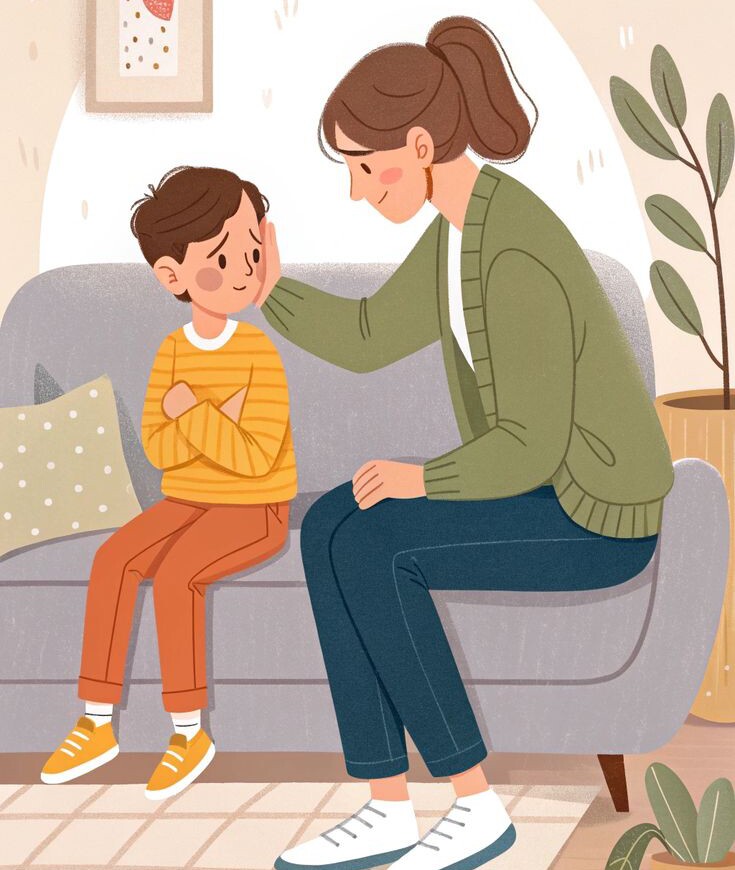Educator Ann Kien Loi once said: “Parental admonishments are often the most annoying noise in children’s ears.”
If we observe the families around us, we’ll notice an interesting phenomenon: parents with low EQ tend to resort to “lecturing” when it comes to teaching their children. On the other hand, high EQ parents have abandoned this approach and instead employ smarter ways to influence their kids.


Lead by Example Instead of Lecturing
According to Bandura’s social learning theory, about 70% of human behavior is learned through imitation. This highlights the immense power of learning from role models, especially parents. The actions and habits that parents display daily will inadvertently become powerful lessons for their children.
Educator Dao Hanh Chi famously said: “Action is the beginning of knowledge, and knowledge is the perfection of action.” This quote emphasizes that practical action is the foundation of learning, and it is through these actions that children truly understand and apply knowledge to their lives.
When parents demonstrate values in their daily lives, children naturally grasp what is right. Children tend to observe and imitate their parents’ behavior. This means that the habits, manners, and values exhibited by parents will significantly influence how children develop their character and behavior.
For instance, if parents consistently show respect to others, their children will likely mirror this behavior. Similarly, if parents embody a hardworking and persistent attitude, their children will tend to develop these qualities in their lives.
Conversely, if children witness negative behaviors such as impatience, disrespect, or irresponsibility, they may also adopt these behaviors.


Ask Questions Instead of Accusing
Psychology suggests that empowering communication and guiding thoughts are more effective than merely pointing out mistakes. When children are encouraged to think and self-evaluate, they develop better self-awareness and self-regulation skills.
Educational expert Jane Nelson states, “Asking questions can inspire children to take responsibility.” Open-ended questions encourage children to think more deeply about their actions and make them feel valued and respected.

When parents shift from asking, “Why did you make the same mistake again?” to “What do you think you can improve on?” they change the child’s mindset from defensive to learning. Instead of feeling criticized and pressured, the child feels encouraged to seek solutions and grow.
True education is not about imparting standard answers but fostering independent thinking. Encouraging children to reflect and find their answers develops their critical thinking and decision-making skills.

Share Experiences Instead of Preaching
According to educator John Dewey, knowledge can only be truly acquired through practice. Dewey emphasizes that learning is not just about absorbing information from books or lectures but also about direct experience. This means that children need to engage in practical activities and apply what they learn to their daily lives.
Psychologist Mihaly Csikszentmihalyi proposed the “Flow Theory”: people experience happiness when they are deeply focused on an activity. This theory suggests that immersion in an enjoyable activity enhances creativity and productivity. When parents create opportunities for their children to have these experiences, they help them find their “flow” in life.
Ultimately, life is the best teacher, and experience is the deepest form of education. Lessons learned through personal experiences, both successes and failures, leave a more profound impression than any theory.

Nowadays, many parents understand the importance of leading by example, using actions to instill habits, asking questions to stimulate thinking, and sharing experiences to enrich their children’s lives. They realize that education is not just about imparting knowledge but also about nurturing their children’s character and life skills. When parents move away from lecturing, children can develop a stronger intrinsic motivation.
By encouraging children to engage in practical activities, parents can help them discover their interests and talents. Children learn teamwork, problem-solving, and empathy through social interactions in real-life situations.
Furthermore, creating a positive learning environment that fosters exploration will help children feel more comfortable and confident in expressing themselves.







































